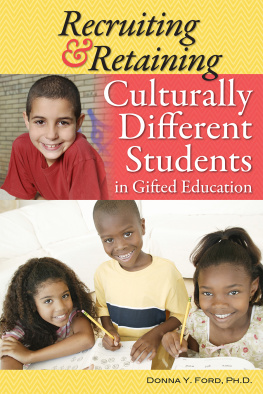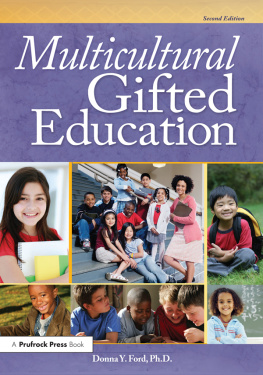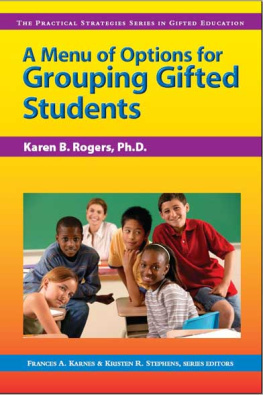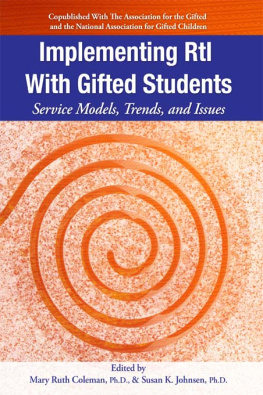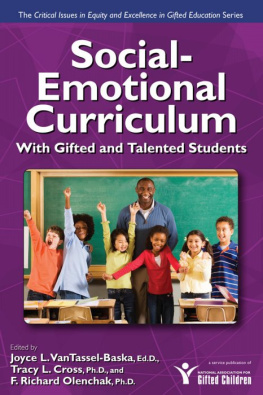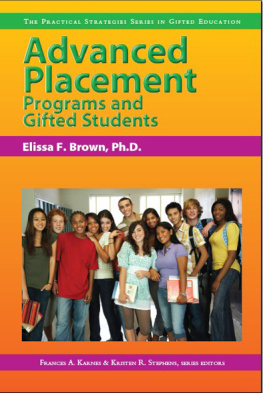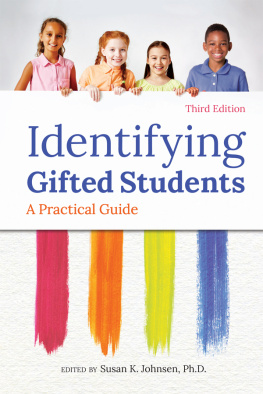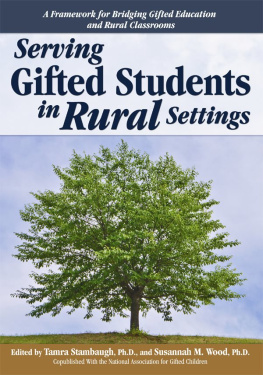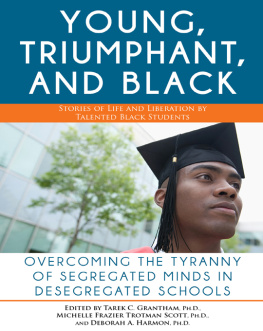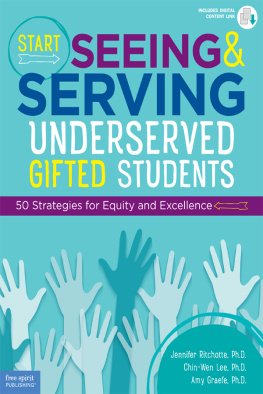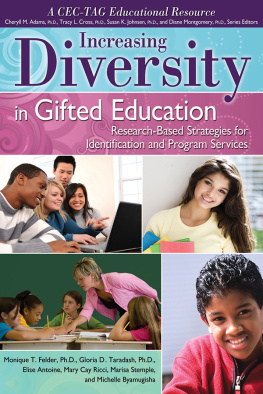About the Author
Donna Y. Ford, Ph.D., is the Harvie Branscomb Distinguished Professor in the Peabody College of Education and Human Development at Vanderbilt University. She holds an appointment in the Department of Special Education and the Department of Teaching and Learning. Dr. Ford has been a professor of special education at The Ohio State University, an associate professor of educational psychology at the University of Virginia, and a researcher with the National Research Center on the Gifted and Talented. She also taught at the University of Kentucky. Ford earned her doctoral degree in urban education (educational psychology), masters degree (counseling), and bachelors degree in communications and Spanish from Cleveland State University.
Dr. Ford conducts research primarily in gifted education and multicultural/urban education. She is highly published and has a extensive line of scholarship. Specifically, her work focuses on closing the achievement gap in five major ways: (a) recruiting and retaining culturally different students in gifted education, (b) developing multicultural curriculum and instruction, (c), reversing underachievement among gifted Black students, (d) increasing Black family involvement, and (e) developing culturally competent educators. She consults with school districts and educational organizations nationally and serves in several leadership roles in both gifted and urban education.
Acknowledgements
I am indebted to all individuals in my lifepersonal and professionalwho have contributed to my development as a parent, family member, community member, educator, scholar, and social justice advocate. My list of people to thank is long, but begins from the womb with my mother, a strong, intelligent, and resourceful lady who has been my role model, mentor, and unwavering advocate. She is one of a kind.
No one means as much to me as my son, Khyle, and grandson, Khyle Jr. (K. J.), born in 2011. My son and I epitomize the unconditional love that exists between mother and son. My grandson has stolen my hearthe is the happiest baby I have ever known; he is gifted. Thinking about his future as a student increases my sense of urgency to have teachers/educators be culturally competent.
My two sisters (Patricia and Karen), their children (Cynara, Christopher, Yvonne, and Kieran), and my great nieces and nephew (Lanisha, Miesha, and Kavon) have also been primary sources of inspiration.
A very special thanks to Dr. Michelle Trotman Scott for serving as my unofficial editor. Her critique and suggestions were invaluable! I am so honored to have her as my friend and colleague.
I would be remiss if I neglected to thank all culturally different gifted students, regardless of whether they have been formally identified or not. I know many have been so underrated and so undereducated. I want to say hugs and kisses to my significant other, Stan Amos, the author of the so underrated dedication. Finally, equity-minded educators are a blessing. But many more are needed to advocate for Black and Hispanic students.
I am always thrilled to contribute to much-needed and long overdue scholarship on how gifted education should, can, and must be a catalyst (maybe a revolution) for change in the name of equity and social justice for all students, for gifted students, for culturally different students, and for the nation at large.

Position Statement
The Role of Assessments in the
Identification of Gifted Students
Assessments can be used for a variety of purposes, including identifying students for gifted programs; providing ongoing feedback to guide the instructional process; and to determine to what extent students have obtained intended goals (e.g., academic, affective) within a gifted program. The purpose of this position paper is to provide parents, teachers, and other advocates of gifted students with best practices endorsed by NAGC related to the first purpose--the role of assessments in identifying students for gifted programs.
NAGC believes that the process of identifying students for gifted and talented programs must be based on defensible measurement practices, including the process of selecting psychometrically sound assessments aligned with a programs goals and objectives; the administration and interpretation of the assessments by individuals with appropriate credentials or training; and the ethical application of decisions regarding gifted program placement. Further, NAGC believes that there are specific practices that are supportive of these measurement practices.
In recent years, there have been significant discussions regarding the role of traditional assessments in identifying students who are typically under-represented in gifted programs, including culturally and linguistically diverse and low-income gifted students, and the use of alternative assessments with these students such as nonverbal ability tests (Lohman, 2005). NAGC believes that assessments selected for use in the identification of gifted students must be sensitive to and appropriate for the characteristics of the students being assessed and must aim to be inclusive of students from different cultures, races, and economic circumstances. Program administrators should choose the most psychometrically sound assessments with appropriate norms for their population of students and programs and use them appropriately for selection (see Lohman, 2005). However, it is also imperative that test users and policymakers understand that alternative-type assessments are not panaceas to the issue of under-representation, each come with limitations in terms of reliability and validity, and that these types of assessments should never be used in isolation to identify gifted children.
Another issue that warrants consideration in the identification of gifted students is the decision to use group versus individual testing, which is often determined by the availability of resources and the characteristics of the children to be evaluated. More accurate assessment data may be obtained via one-on-one testing with very young children and children with special characteristics and needs such as those with dual exceptionalities. For these children it is important to have a tester who is sensitive to and experienced with the group being assessed as well as the training in the administration of the assessments.
NAGC believes that because the use of assessments is an integral part of the identification process, test users have a responsibility to ensure that all testing is conducted in a fair and ethical manner. Such practices include the appropriate storing of testing materials before, during, and after testing; training all personnel involved with the administration and/or scoring of assessments; utilizing assessments that are developmentally appropriate and for only the purposes for which they were developed; interpreting assessment results to the appropriate audiences; and maintaining the confidentiality of students at all times.
While NAGC advocates for the use of multiple assessments in the identification of gifted students, NAGC also believes that combining disparate data from multiple assessments must be done in such a way as to identify not only those students who are in immediate need of instruction beyond the regular curriculum, but also those students who display the potential for high-level learning beyond the regular curriculum.
In order to best implement defensible assessment practices for the purposes of gifted program identification, NAGC supports the collaboration of multiple stakeholders, including teachers, parents, and other advocates of gifted children, as well as general education administration at the district and state levels. This collaboration works to ensure that the application of defensible measurement practices results in the equitable and consistent use of assessments for the purposes of gifted program identification.
Next page
